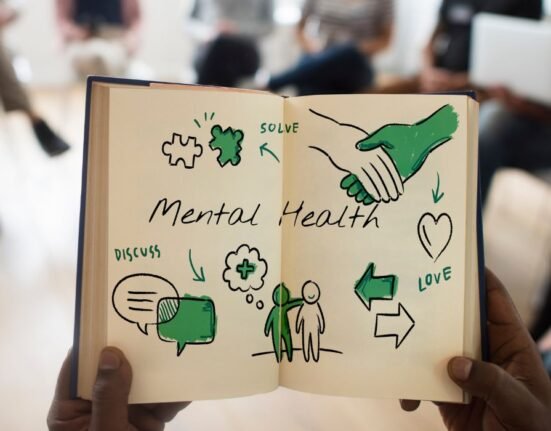How is it really like to live with dissociative personality disorders. Mr A[1] says, “It frustrates me when people try to tell me my alters aren’t real. Even if they’re just trying to make me feel better, I end up feeling more alone and misunderstood. My alters are me. How could they not be real?”
It is tough to understand what a person may be going through on the outside but the more we know the better we understand how dissociative identify disorder affects their lives and we can provide a support system for them.
To begin with, let’s understand what is dissociative identity disorder
In simpler terms, dissociative identity disorder is basically the presence of two or more personality states. DSM 5 (APA) provided the following definition for it, “Two or more distinct identities or personality states are present, each with its own relatively enduring pattern of perceiving, relating to, and thinking about the environment and self, amnesia must occur, defined as gaps in the recall of everyday events, important personal information, and/or traumatic events”.
What causes dissociative identity disorder?
Richard Kluft[2] (Asia et. al., 2018) proposed model on the development of dissociative identity disorder founded on 4 aspects:
- The capacity for dissociation.
- Past traumatic experiences that overpower the child’s coping skills.
- Detailed psychological structuring of the dissociative identifies disorder alternative personalities.
- Perpetuating factors such as the absence of comforting and restorative experiences, which require individuals to find their own ways of regulating distress.
Individuals living with dissociative identity disorder it may become across as frightening to realize that they have two distinct personalities in them which they never knew. Diagnosis only gives them a brief understanding of what dissociative identify disorder is and why they may feel different at times.
But the question is how individuals cope with it?
Coping strategies mentioned have been compiled from different resources from those experiencing dissociative identity disorder and how it helped them.
Illness is not your fault
The most important thing is to understand that illness is not their fault. The traumatic events they went was not their fault. People living with dissociative identity disorder may experience shame and low self-worth it is important to learn to accept themselves and learning to move through these feeling take time and undergoing extensive therapy helps.
Seek professional help
Seeking professional help from a therapist will help in improving your understanding about dissociative identify disorder, working through your thoughts and emotions, understanding roots of disorder and improved coping skills. A person may undergo both psychotherapy and pharmacotherapy simultaneously.
Building social network
Family plays an important role in the treatment and coping as well. Family plays a significant role in forming a strong support system. Having a social support system of family and friends plays an essential role in improving mental health, quality of life and building trust.
It is completely okay to ask for help when you need it you do not need to go through it alone.
Communicate
It may be frustrating at times to experience distinct personalities and different voices. Internal communication with voices becomes an integral part of understanding personalities. You may think of dissociative identity disorder as trying to communicate with a group of people living nearby. You may know their name and may talk to some of them regularly.
“When all parts are present and aware of what’s happening[3] in the world and functioning together cooperatively. We gradually learn to tolerate the overwhelming feelings contained in separate parts.” (Kallena, 2017)
Communicating helps in understanding your fears, triggers and response.
Keep a journal
People suffering from dissociative identity disorder have shared how keeping a journal helped them. Maintaining a journal helps in improving internal communication and provides an understanding of the different aspect of personalities. Write down your experiences. Journaling is also important of catharsis.
Creating a schedule
Plan your day and make a schedule of daily tasks[4]. Put reminders for appointments, medications timings, list your daily activities. Making a schedule can help in staying in the present, avoiding stressful situations; and Staying focussed and avoiding gaps in memory.
Practice relaxation techniques
When your internal voices get overwhelming practising relaxation techniques may help in calming down and de-cluttering. Find an activity or indulge in your hobby that helps you relax like yoga, meditation, knitting, create your own music playlist etc.
Practice self-compassion
Be compassionate towards yourself and your experience. Instead of self-criticism involve yourself in better understanding of self. This may sound difficult, take your time but be patient and kind with yourself.
Contacting your therapist if you feel the situation is getting out of control.
Individuals with dissociative identity disorder are likely to feel alone and alienated in their journey of healing. It is important to understand that we need to help them feel supported and understood. We may not understand what they are going through but we need to be patient and receptive to their thoughts, feelings and their experience. When the individual is living through his/her alternate personality that is not familiar to you or them remember to be open and help them feel accepted regardless.
“Healing may not be so much about getting better, as about letting go of everything that isn’t you – all of the expectations, all of the beliefs – and becoming who you are.” – Rachel Naomi Remen
[1] Nowak, L. (2019, June 19). How Dissociative Identity Disorder Affects Daily Life and How You Can Help. Retrieved from https://www.brightquest.com/blog/how-dissociative-identity-disorder-affects-daily-life-and-how-you-can-help/
[2] Asia, J. (2018). DISSOCIATIVE IDENTITY DISORDER REFLECTED IN FREDERICK CLEGG’S CHARACTER IN THE COLLECTORS NOVEL. 2nd English Language and Literature International Conference (ELLiC), 2, 428.
[3]Kallena, & ABC Radio National. (2017, March 1). What it’s like to live with dissociative identity disorder. Retrieved from https://www.abc.net.au/news/2017-03-01/what-its-like-to-live-with-dissociative-identity-disorder/8312076
[4] My life with dissociative identity disorder. (2018, March 26). Retrieved from https://www.sane.org/information-stories/the-sane-blog/my-story/my-life-with-dissociative-identity-disorder












Leave feedback about this